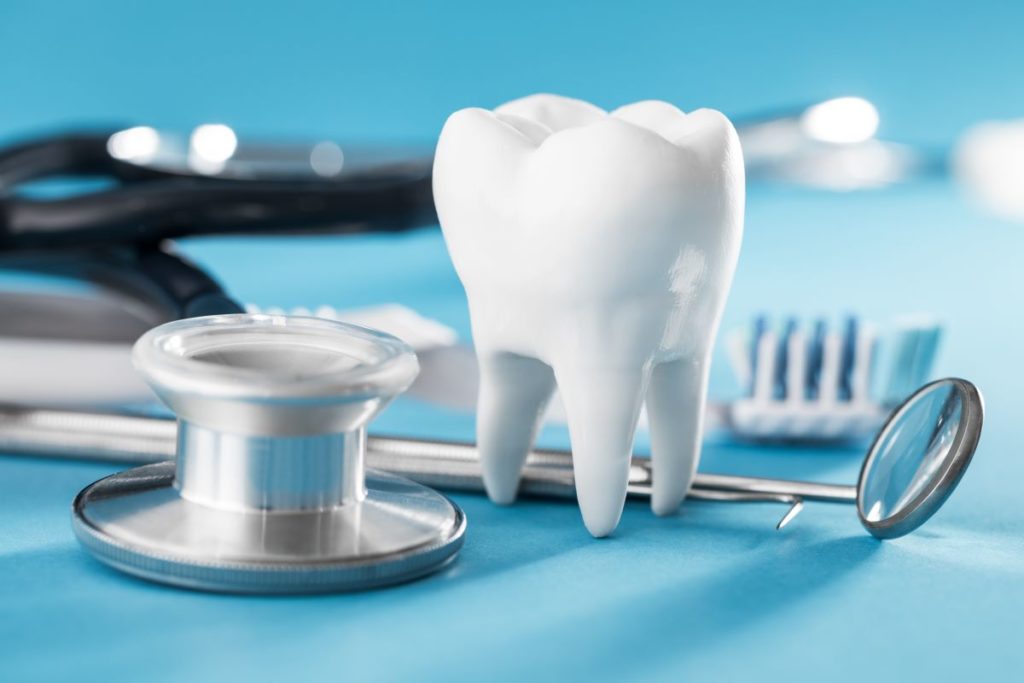If you have recently lost a tooth, you may be looking at options to be able to replace it. Luckily, many dental practices offer restorative dental treatment in order to replace missing teeth. So if you are looking at ways to replace a missing tooth you may want to consider having dental implants, which will help you to restore your smile.
What are dental implants?
Dental implants are a dental treatment that falls under restorative dentistry. They are one of the most popular ways to restore teeth that have been lost due to an accident, injury or natural causes. Dental implants are simply replacement teeth which are fixed in the area of your jaw where a tooth should be. Dental implants consist of a metal screw, usually made of titanium, which is placed into the jawbone.
Before undergoing dental implant treatment, you will be required to allow a dentist to assess your teeth and gums at a consultation. This assessment is to determine whether you have enough bone in the area where the dental implant will be placed in order for it to remain sturdy in the mouth.

If during the consultation it is determined that you are suitable for oral implants at all, a second appointment will be made where you will be asked to return to have the implant placed into the jawbone. This requires having a minor procedure where a small incision is made in the jaw under local anaesthetic in order for the implant to be inserted. For individuals who do not have enough bone, artificial bone may need to be placed before inserting the implant, which can make the treatment process slightly longer.
Once the implant has been placed into the jawbone a follow up appointment is booked for about four to six months after the procedure. This is so that the jawbone can fuse with the implant. This process is called osseointegration and has to take place before continuing with the dental implant process.
Once you return to the dental practice, the dentist will check the implant to ensure that it has fused with the jawbone. If this has happened, the dentist can carry out the final part of the dental implant procedure which is when the artificial crown is placed on the implant.
The benefits of having oral implants in
Having dental implants provides many benefits for those who are missing a tooth or teeth.
Firstly, the artificial tooth placed on the implant is made to match the shape and the shade of an individual’s remaining teeth, meaning that the dental implant remains undetectable in the mouth. The dental implant is also secure, meaning you can eat normally without any risk of the dental implant becoming loose or falling out. Dental implants are also a long-lasting solution for replacing a missing tooth or teeth and by maintaining a good oral regime dental implants can last for many years in an individual’s mouth.
